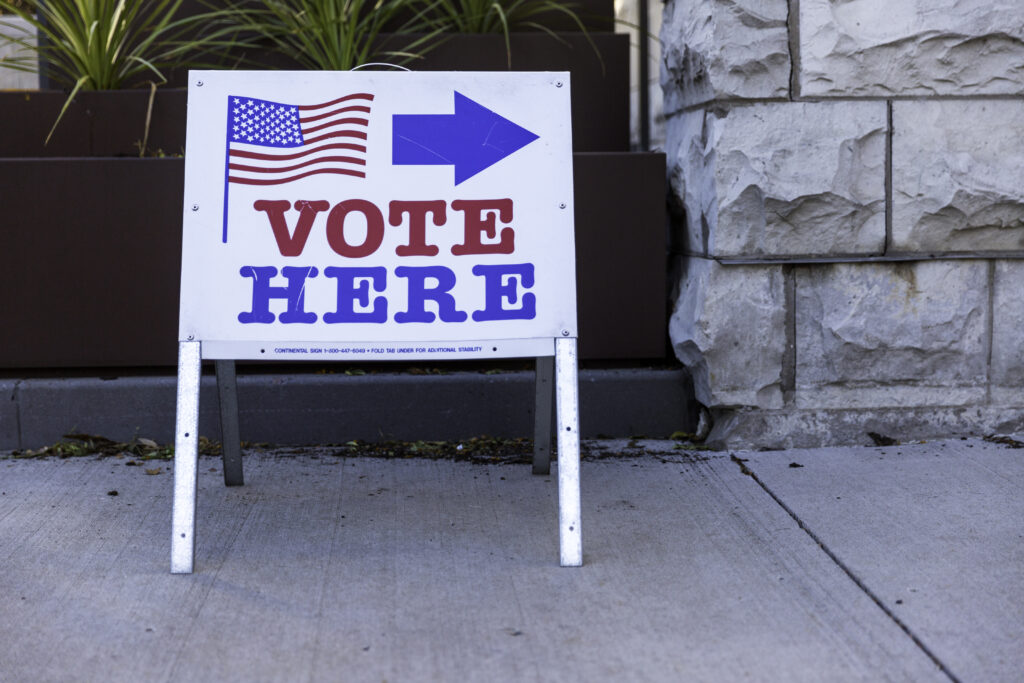|
Shackling the Internet with Taxes
Congressional discussions are heating up about how the Internet should be taxed and by whom. Last week House Judiciary Committee Chairman Bob Goodlatte (R-VA) released his seven principles for Internet taxation. Goodlatte’s principles are good examples of a sound approach to taxation and will have a big impact on the upcoming debates over taxation of Internet purchases and taxes on Internet access. The debate over taxes on Internet purchases has largely centered on the Marketplace Fairness Act, which would enable states to collect sales tax revenue from companies with no physical presence in the state. Katie McAuliffe, federal affairs manager at Americans for Tax Reform and executive director of Digital Liberty, says “All businesses collect and remit sales tax for sales made within the states where they are physically present. States have a use tax which they have not adequately tried to collect.” She adds, “The major is sue is the precedent this legislation sets for states to tax beyond their physical borders.” McAuliffe says this precedent could be used to justify business activity taxes or business income taxes on out-of-state firms. The other issue being debated is Internet access taxes. The Internet Tax Freedom Act is set to expire in 2014, and its expiration could enable governments to implement taxes on Internet access. Fortunately for taxpayers, Rep. Goodlatte has proposed a permanent moratorium on this discriminatory tax. Heartland Senior Policy Analyst Matthew Glans argues the Internet is a vital component of the global economy; taxing access would reduce the number of users, hinder economic growth, and needlessly distort the market f or the sake of a little extra tax revenue for fiscally mismanaged states. These next few months could be crucial for the future of the Internet. If Congress embraces Goodlatte’s principles by rejecting discriminatory taxes on the Internet and Internet access, the Internet can continue to be a bastion of innovation and prosperity. This week’s edition of The Leaflet features research and commentary addressing Internet access taxes, terrorism insurance, prevailing wage laws, six lies about U.S. education, Obamacare’s moment of truth, and Fukushima. Respectfully, John Nothdurft
|
|
Research & Commentary: Internet Access Tax The Internet Tax Freedom Act of 1998 was designed to promote the growth of the Internet by placing a moratorium on state and local taxation of Internet access and the creation of discriminatory taxes on emails and other data. The moratorium is set to expire in 2014, but a new proposal introduced by Sens. Ron Wyden (D-OR) and John Thune (R-SD), the Internet Tax Freedom Forever Act, would permanently extend the ban on Internet access taxes. It also would keep state and local governments from imposing multiple and discriminatory new taxes on digital items such as apps and music, as many governments have begun to do with wireless phone service. Despite the current moratorium, Internet users in some states still pay access taxes on their Internet service provider (ISP) bills. When the Internet Tax Freedom Act was passed, ten states were grandfathered in and were allowed to tax ISP charges as part of a political compromise. Those ten states are Hawaii, New Hampshire, New Mexico, North Dakota, Ohio, South Dakota, Tennessee, Texas, Washington, and Wisconsin. Proponents of the Internet access tax moratorium say making it permanent is a necessary step in promoting wider access to the Internet while keeping the cost down and eliminating discriminatory taxes. As the Internet has become one of the driving forces behind economic growth across the United States, ensuring affordable access for businesses and consumers is crucial, Wyden argued in a statement: “As the Internet Tax Freedom Act enabled and promoted Internet access and adoption across America, the Internet became a platform to facilitate global commerce, sparking nothing short of an economic revolution.” Thune commented, “Keeping the Internet accessible to consumers encourages innovation and investment in our global economy.” There has been some confusion about which taxes the moratorium and possible ban would apply to. The only taxes prohibited by the moratorium are fees for Internet access, such as broadband or dial-up services; the moratorium does not exempt Internet sales from general state sales taxes. Critics of increased Internet access taxes say allowing these taxes could quickly make ISP bills resemble phone bills, with more and more taxes added and more people being unable to afford Internet access. Internet access taxes would hit broadband users everywhere. While supporters of increased access taxes have argued the taxes are needed to fund programs to help expand broadband to underserved areas, broadband coverage is already widely available and these programs may be unnecessary. Internet access taxes place an unnecessary burden on consumers in order to do something the market is already handling quite effectively. Making the Internet access tax moratorium permanent would help broadband access and development expand while reducing the need for government broadband spending. |
|
Research & Commentary: Terrorism Risk Insurance Act Extension The Terrorism Risk Insurance Act (TRIA) is currently set to expire at the end of 2014, and both its proponents and detractors have been pushing Congress to act by either extending the program or allowing it to expire and be replaced by private terrorism insurance. TRIA has deep flaws and imposes billions of dollars in liabilities on taxpayers. Under TRIA, the federal government has assumed nearly unlimited liability for major terrorism losses. Although many in the insurance industry contend TRIA is necessary to maintain a viable market for terrorism insurance, efforts should be made to ensure the program does not end up causing unnecessary costs to taxpayers. In this Research & Commentary, Matthew Glans argues that before passing an extension, Congress should consider ways to let the private market work. Subsidizing the terrorism insurance market in perpetuity is not a sound long-term policy. Research & Commentary: Prevailing Wage Laws Thirty-two states have prevailing wage laws. In most of those states, the laws affect only projects above a certain budget floor, ranging from as low as $1,000 (California, Rhode Island) to as high as $500,000 (Maryland). Of the 18 states without prevailing wage laws, ten used to have the law but it was repealed by legislative action or court decision. State and federal prevailing wage laws have a significant effect on the $300 billion spent every year for government construction projects in the United States. Recently, local and state governments have begun to turn against the laws. Mayor Michael Bloomberg was successful in challenging New York City’s prevailing wage law in court. Michigan is considering repealing its prevailing wage laws, and some of the state’s counties already have done so. In this Research & Commentary, Government Relations Intern Matt Faherty argues prevailing wage laws are a form of central planning that establishes labor costs with no consideration for the exact type of work or the skill of the employees. “They serve no productive function in government contracting, instead encouraging waste and cronyism. Lawmakers at the state and federal levels should consider repealing prevailing wage laws for the taxpayers’ sake.”
Six Lies Most People Believe About U.S. Schools Popular lies about U.S. education certainly don’t do the kids any good. They just let the adults continue to feel comfortable while kids receive increasing diagnoses of ADHD (one in five boys now) and special needs, delay life milestones like marriage and buying a house, enter a crippled workforce, and face paying off the biggest debt in the history of humankind while receiving no government benefits in return. All these, and more, are directly related to education quality. No wonder the kids are getting antsy. Obamacare’s Moment of Truth In the weekly Consumer Power Report e-newsletter, Heartland Research Fellow Benjamin Domenech explains, “For much of the past four years, Americans who believe in freedom have fought tooth and nail against first the passage, and then the implementation, of President Barack Obama’s health care law. This fall, as many of the most significant aspects of the law are finally pushed into action, supporters of the measure still express befuddlement at its unpopularity, which has remained stubborn since its passage.” Domenech points out, “The host of mandates, regulations, and redistributive subsidies did little to hide a few basic straightforward facts: that the law fundamentally transformed the relationship of the citizen and the state; that the expansion of coverage was overwhelmingly based on the expansion of Medicaid, the nation’s worst-functioning health care program; and that the $2,500 reductions in premium costs – promised so frequently by Obama – were never going to materialize.” “This, now, is Obamacare’s moment of truth: the moment when the American people will see whether the promises match up with the rhetoric,” Domenech writes. “If they do, Obamacare will be a political success, and an unmitigated one. But if they don’t, the political consequences could alter the future of the nation.” Fukushima and the Misunderstood Effects of Radiation More than two years have passed since a major earthquake and devastating tsunami damaged the Fukushima Daiichi nuclear power plant, and still not a single case of radiation illness or death occurred as a result. How many people in the United States are aware of this? The answer is very few, as the media failed to follow up their breathless warnings of nuclear doom and gloom with the reassuring facts. The United Nations Scientific Committee on the Effects of Atomic Radiation finally issued a press release on May 31, 2013 stating, “Radiation exposure following the nuclear accident at Fukushima-Daiichi did not cause any immediate health effects. It is unlikely to be able to attribute any health effects in the future among the general public and the vast majority of workers.” |


